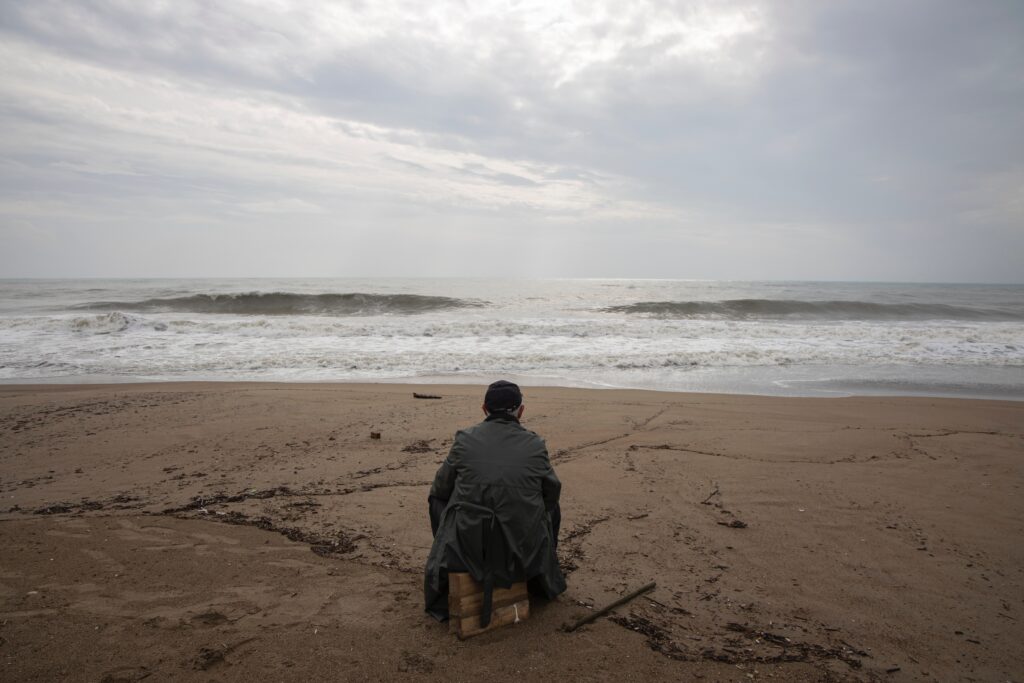The Coronavirus pandemic disrupted our lives and our careers. It reminds us of the ineluctable uncertainty in our lives.
We’re coming up on one year since COVID-19 made its malign entrance into this world. Basic questions remain unanswered. How many of us have actually had it? How many people have died from it? How does it spread? Will a vaccine be effective?
Like everyone else, I have felt paralyzed in the face of so much uncertainty. My wife and I agonized over the decision to send our daughter to kindergarten. Evidently our school board members agonized over the decision too: they changed their reopening plans at least three times as the academic year approached.
All of us have been forced to make decisions amidst tremendous uncertainty. We can’t count on anything happening like it’s supposed to in 2020. Not summer vacations, not school, not football, not even elections. Things that seemed permanent before the pandemic have been revealed as pretty fragile arrangements.
The uncertainty would seem to extend to the work I do as a fundraiser. Donations will probably be down in the months, or even years, to come. Some organizations may do all right. Many won’t.
And yet, the uncertainty endemic to Covidtide has made me appreciate anew how uncertainty is already baked into the work of fundraising. Even under the sunniest of economic skies, fundraising is no sure thing.
Such an assertion may strike you as obvious. I’m not so sure everyone sees it that way.
Our industry sometimes gives the impression that “philanthropy” is like a natural resource whose extraction can be planned, managed, and deployed predictably across the country. We analyze its ebb and flow. We explore for new sources. We employ digital tools for its targeted extraction. We talk about Millennials like energy executives talk about North American shale.
Such a mechanized view obscures a more fundamental truth: that fundraising is built upon the generosity of others. There are no laws dictating the growth or decline of philanthropy. It is not something that can simply be “ramped up” like the production of masks or vaccines.
We ask people for money and in return we offer . . . not much, when you get down to it. Yes, our organizations provide important services that strengthen communities where donors live. Yes, our organizations can help improve the reputation of donors. And, yes, making a donation can provide good feelings.
But let’s not kid ourselves. This is not the same as making and selling something. From the perspective of return, an “investment” in a nonprofit differs massively from an investment in a business.
People can say “no” when we ask them for money. Many of them will say “yes,” thank God. But they don’t have to, and we frequently don’t know why they say “no.”
This is not to say that wondering whether charitable revenue will come in is like waiting for Godot. The persistence of human generosity is not a law, but it is an historical fact. To be a fundraiser exposes you daily to an incredible mystery: that other people give away their resources to help others, and that they do it gladly.
Coronavirus may have upended our routines and exposed the tenuousness of things like global supply chains, but I’ll go out on a limb and say that it hasn’t altered human nature. Which is to say, the pandemic has brought into relief those things which really are enduring. I say enduring—not predictable or unchanging. Generosity and charity aren’t going anywhere, though they’ll remain imperfect and elusive.
Nobody knows what the rest of 2020 will bring, let alone what will come after. Certain nonprofits may very well suffer in the short term. We can comfort ourselves with hopeful predictions about a likely rebound in giving, even if such predictions tend not to be worth the pixels they occupy on your screen.
Living amidst uncertainty, as fundraisers do every day, certainly does require hopefulness. It’s not a naïve hopefulness that everything will somehow work itself out. It’s a confident hopefulness, one rooted in gratitude and a confidence in persistent hard work—and nourished by the knowledge that even times of uncertainty are not without their gifts.





